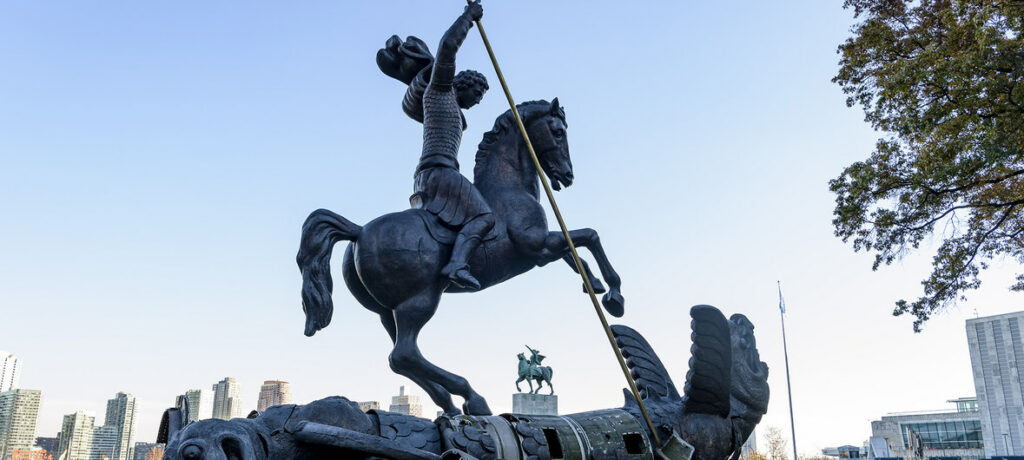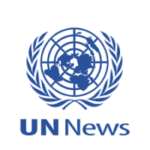At UN, Middle East Countries Discuss Steps towards Regional Nuclear-Free Zone
MIDDLE EAST AND NORTH AFRICA, WEAPONS OF MASS DESTRUCTION, UNITED NATIONS, 25 Nov 2019
UN News – TRANSCEND Media Service
18 Nov 2019 – Representatives from across the Middle East are meeting at UN Headquarters this week in efforts to negotiate a legally binding treaty establishing a regional zone free of nuclear weapons and other weapons of mass destruction.
Speaking today during the inaugural session of the deliberations on a nuclear-weapon free Middle East, UN Secretary-General António Guterres said the zone would have significance beyond the region.
“I therefore hope this Conference will serve as the start of an inclusive process in which all the States of the region can participate,” he said.
Currently, there are five nuclear-free zones worldwide: in Latin America and the Caribbean, Africa, Central Asia, Southeast Asia, and the South Pacific.
Not only do they eliminate any possibility of a nuclear conflict in these locations, they also provide a means for countries to work together on common regional security, according to Mr. Guterres.
“They also provide tangible security benefits by giving their members assurances against the use, or threat of use, of nuclear weapons. At the same time, these zones can provide additional assurance to the global community of the peaceful nuclear intentions of the countries in these regions,” he said.

A view of the sculpture – Good Defeats Evil – on the UN Headquarters grounds, presented to the UN by the Soviet Union on the occasion of the Organization’s 45th anniversary.
UN Photo/Manuel Elias
Significance beyond the region
For the Secretary-General, these motives are important to the Middle East, where the overall situation remains a serious concern for the entire world.
The region has been scarred by ongoing complex civil wars involving non-state armed groups, terrorist organizations and regional and international military powers.
“Meanwhile, concerns over nuclear programmes persist and continue to drive tensions,” he said.
“We have yet to see meaningful accountability for the use of chemical weapons. There are signs of active arms competition, including the acquisition and use of new weapon technologies.”
The first conference on the establishment of a Middle East zone free of #nuclearweapons & other #WMD begins today. “I hope this serves as the start of an inclusive process in which all the States in the region can participate”@antonioguterres said. Read : https://t.co/XadniNlDAV pic.twitter.com/fn6HiyxhW6
— ODA (@UN_Disarmament) November 18, 2019
Latin America and Caribbean an inspiration
The Middle East-focused meeting, which runs through Friday, marks the first session of a conference that will be held annually until a legally binding treaty for the nuclear-free zone is agreed.
The UN chief hoped participants will be inspired by the example set by Latin America and the Caribbean, where the first zone was proposed in the aftermath of the Cuban Missile Crisis in October 1962.
“Despite the tensions and politics of the Cold War, countries of the region persevered and in 1967 established a flexible and durable arrangement, which has served as a model for all such successive zones,” he said.
“Let us be guided by their experience – and those of other regions – as we advance in all of our efforts across the disarmament agenda.”
UN fight for nuclear disarmament
Tijjani Muhammad-Bande President of the UN General Assembly, noted the continued existence of more than 15,000 nuclear warheads stockpiled around the world, and stressed that any use of these weapons would be a humanitarian and ecological catastrophe, causing irreplaceable damage.
“We cannot in good conscience ignore these risks,” he said, adding that the Treaty on the Non‑Proliferation of Nuclear Weapons remains the cornerstone of the nuclear disarmament and non‑proliferation regime, and its 2020 Review Conference will propel a stronger commitment towards a nuclear‑weapon‑free world.
Although nuclear weapons have only been used once in history, the 1945 bombings of the Japanese cities of Hiroshima and Nagasaki during the Second World War attest to their devastation.
These are the most dangerous weapons on Earth, able to “destroy a whole city, potentially killing millions, and jeopardizing the natural environment and lives of future generations…,” as the UN Office for Disarmament Affairs has stated.
The UN was established from the ashes of the Second World War and has been working to eliminate nuclear weapons ever since, including through the Treaty on the Non-Proliferation of Nuclear Weapons (NPT), as well as the Comprehensive Nuclear-Test-Ban Treaty (CTBT) and the Treaty on the Prohibition of Nuclear Weapons (TPNW), both of which are yet to enter into force.
Tags: International Relations, Middle East, Nuclear Free Middle East, Nuclear Weapons, United Nations, WMD
DISCLAIMER: The statements, views and opinions expressed in pieces republished here are solely those of the authors and do not necessarily represent those of TMS. In accordance with title 17 U.S.C. section 107, this material is distributed without profit to those who have expressed a prior interest in receiving the included information for research and educational purposes. TMS has no affiliation whatsoever with the originator of this article nor is TMS endorsed or sponsored by the originator. “GO TO ORIGINAL” links are provided as a convenience to our readers and allow for verification of authenticity. However, as originating pages are often updated by their originating host sites, the versions posted may not match the versions our readers view when clicking the “GO TO ORIGINAL” links. This site contains copyrighted material the use of which has not always been specifically authorized by the copyright owner. We are making such material available in our efforts to advance understanding of environmental, political, human rights, economic, democracy, scientific, and social justice issues, etc. We believe this constitutes a ‘fair use’ of any such copyrighted material as provided for in section 107 of the US Copyright Law. In accordance with Title 17 U.S.C. Section 107, the material on this site is distributed without profit to those who have expressed a prior interest in receiving the included information for research and educational purposes. For more information go to: http://www.law.cornell.edu/uscode/17/107.shtml. If you wish to use copyrighted material from this site for purposes of your own that go beyond ‘fair use’, you must obtain permission from the copyright owner.
Read more
Click here to go to the current weekly digest or pick another article:
MIDDLE EAST AND NORTH AFRICA:
- How Arab-Muslim Leaders Betrayed the People
- Thirty Years of Middle East Lies just Keep Coming Back to Haunt Us
- Israeli Atrocities Continue in Lebanon
WEAPONS OF MASS DESTRUCTION:
UNITED NATIONS:
